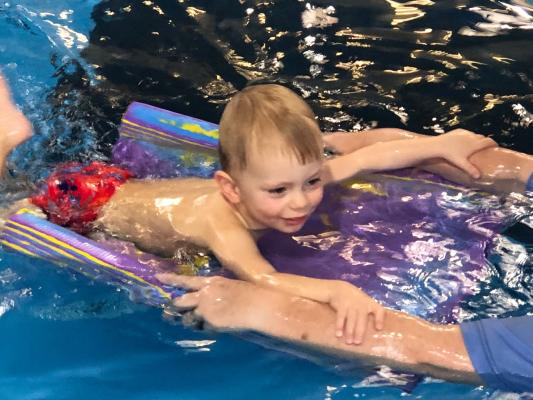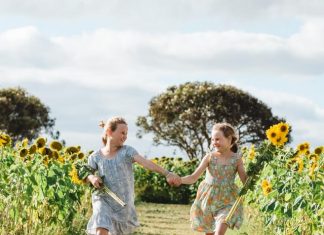Children are our most precious resource, but every year in Australia we have a number of young children unnecessarily drowning or left with permanent brain damage through near drowning incidents. No one should die from drowning. It is hard to imagine the impact and grief of losing a loved one, knowing that good layers of protection are readily available.
Owner and Manager of Geelong Aquatic Centre, Debbie Gill, is an AUSTSWIM presenter who travels overseas, particularly in Asia and UAE to deliver courses to teachers to help lower the high drowning rates and help centres set up their infant, toddler and school age programs. She says swimming lessons from an early age provide parents and young children with the avenue to learn to respect the water and be constantly reminded about setting up layers of protection to avoid these incidents. “Ensuring barriers such as proper fencing and gates are in place and well serviced, learning resuscitation and having infants and children taught to swim in a quality, on-going year-round program with qualified and experienced teachers, setting non-negotiable safety rules around the house and aquatic environment and enforcing them consistently,” Debbie says.
“It is essential to keep your eyes – not just your ears – on young children and toddlers at all times around water, as they can drown in the smallest amount of water without a sound. Good swimming lessons teach both parents and their children to respect the water and the dangers associated with it.”
Studies by Professor Robyn Jorgensen from Griffith University in Queensland have shown that infants and young children who have taken part in learn-to-swim lessons, are developmentally at least ten months ahead of their peers. They have a decided advantage over one who is either afraid of, or has no experience in water, other than the bathtub. The initial reaction to an unfamiliar situation or unexpected entry into the water, is panic. A baby or young child who has taken part in an early aquatic program will be more likely to rise to the surface and turn automatically onto their back, floating happily and confidently, or turn to grasp the edge and monkey to safety.
“Young children who are happy and confident in the water will always be able to think themselves out of situations and will be in a position to most quickly, safely and enjoyably, learn to swim,” Debbie explains. “Early aquatics for babies and toddlers is valuable, not just for water safety, but also as a part of a child’s total development, particularly their perceptual and motor development and spatial awareness. Infant aquatic lessons provide an opportunity to develop your child socially, emotionally, cognitively and physically in a safe, structured, multi-sensory environment. Your child will be able to creatively explore and practice skills safely, whilst developing self-confidence and self-esteem.”
Geelong Aquatic Centre offers the ideal environment for babies from four months through to adult swimmers, to learn to swim. The centre is warm and all pools are heated and salt chlorinated. Children are comfortable both in and out of the water, particularly important for babies and children and adults of all ages, who lose body heat rapidly. A warm hat and shoes on leaving the centre in the cooler months ensures that they are protected from the elements.
Debbie says staff at the centre are all AUSTSWIM qualified in a variety of levels and are passionate about what they teach and dedicated to the children in their care. “They teach them with love, care and enthusiasm and are kept up to date with professional development through conference, in-services and speakers. The centre is a family owned and operated business which offers no gimmicks, but good value. Their aim is to not to produce champions, but confident and capable swimmers who will be able to save not only their own lives, but those of others.”
“They firmly believe in their motto ‘Swimming Lessons, A Gift for Life’.”
For more information, phone 5222 5530, visit www.geelongaquaticcentre.com.au or visit the centre to watch a class.








